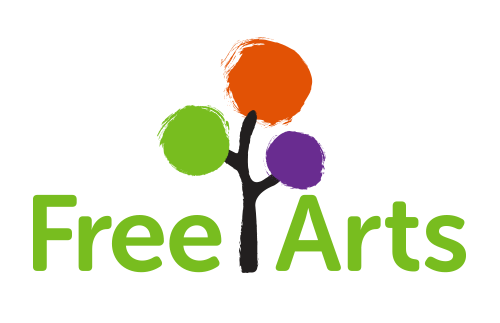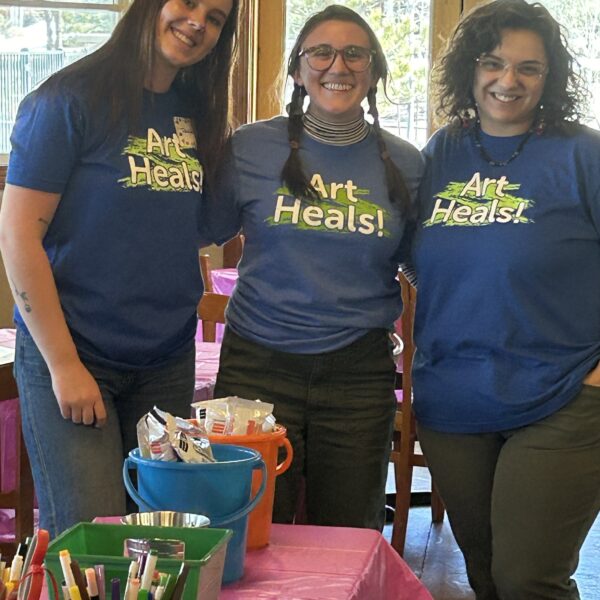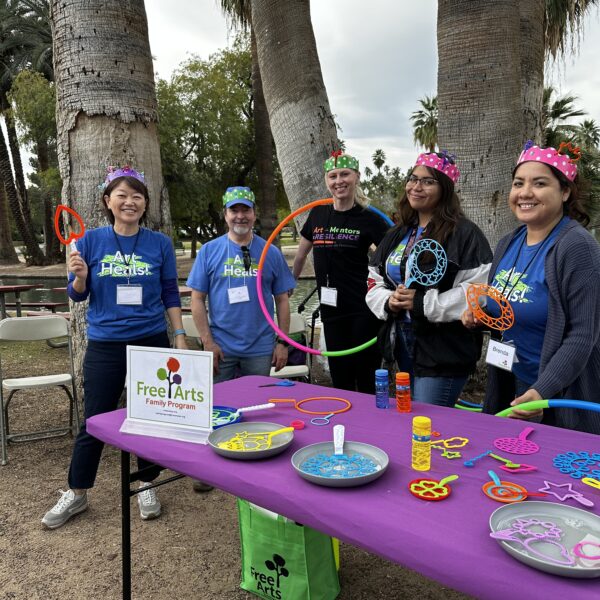Keynote speaker, psychiatrist, and renowned researcher of trauma-informed care, Dr. Bruce Perry, addressed the audience at the 5th Annual ACES Summit on December 11, in Scottsdale Arizona. While referring to ACES (adverse childhood experiences), Dr. Perry noted that early trauma in children can cause mental issues like anxiety and depression and physical issues such as high blood pressure and diabetes. If a child experiences on-going stressors that are extreme, prolonged, or unpredictable, they end up with a highly sensitized or overactive stress response. He goes on to state, “If people who have ACES also have a history of healthy relationships, or “relational wealth,” they are buffered from the impact of adversity. Disconnection from family, culture, and community increases maladaptive outcomes.” Understanding the child’s history and pattern of trauma is also crucial. Free Arts lives by these beliefs, that a trauma-informed approach through art coupled with the presence of a caring adult mentor helps build resilience and hope in children and teens who have experienced the trauma of abuse, neglect, and/or homelessness. For many of the children, there is a void when it comes to the presence of a consistent, caring adult. Free Arts Volunteer Mentors provide that stability and safety that children and teens need in order to thrive.
As a “trauma-informed” state, Arizona Governor Doug Ducey and his wife, Angela Ducey, have worked closely with Arizona ACE Consortium to understand the impact of adverse childhood experiences and the impact of trauma-informed care. In Arizona, half of the children who enter foster care have an ACE score of 4 or more (out of 10). This is greater than any other state in the U.S. According to Governor Ducey, the number of kids who have an ACE score of 5 or more can fill up the entire Cardinals stadium. That is why understanding adverse childhood experiences and creating interventions aligned with trauma-informed care is necessary.
“The human brain is remarkably malleable and capable of changing,” Dr. Perry explains. The great thing is that with the proper tools, we can work to create resilience and hope in children. “We must be careful not to make things worse through ineffective means, like blaming or misunderstanding intentions.” At Free Arts, we search for the treasures or gifts in every child and help bring them to the surface through art. We also understand the immense value of our volunteer mentors. We continue to work toward the vision that every child who has experienced the trauma of abuse, neglect, and/or homelessness has access to resilience-building art programs and caring adult volunteer mentors. For more information about Dr. Perry’s work, visit www.ChildTrauma.org.

Dr. Bruce Perry addresses the conference attendees



